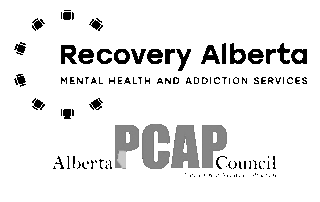
Retreived from Girls, Women, Alcohol, and Prevention: Perspectives on FASD Prevention
There are many influences on alcohol use during pregnancy, which means that our approach to prevention must be multifaceted. In Canada, efforts are underway to develop a national framework for FASD to ensure FASD prevention, diagnosis, and intervention supports across the lifespan are accessible. When considering the prevention needs for the National FASD Framework, we identified four overarching influences on alcohol use in pregnancy: structural, informational, stress-related, and health determinant related. These influences include:
Structural – Inadequate access to family doctors, preconception and prenatal care services, as well as contraceptive and substance use services, which results in many women not receiving information and support to reduce or stop alcohol use in childbearing years. Alcohol marketing and weak uptake of the social responsibility role by Liquor Distribution branches are also structural/societal-level influences.
Informational – Access to reliable information about the risks of alcohol use in pregnancy and FASD as a disability is lacking. However, misinformation, inconsistent and contradictory messages about safe levels of alcohol and other substance use in pregnancy abound. Women may also not realize they are pregnant and continue to drink in risky ways before pregnancy is recognized.
Stress-related – Common gendered stressors experienced by women such as adverse childhood experiences (ACES), gender-based violence, trauma, mental health concerns, and coercive control by partners are consistently mentioned in the literature as factors that contribute to women’s alcohol use, and to women’s dependency on alcohol due to using alcohol as a coping mechanism.
Health determinant-related– Social isolation, maternal age, educational attainment, and socioeconomic status (SES) have been identified as influences on alcohol use in pregnancy. While several studies have found that women of older age, higher SES, and higher educational attainment have an increased likelihood of consuming alcohol during pregnancy, other studies have described that younger maternal age, lower SES, and lower educational attainment are linked to increased alcohol consumption during pregnancy.
The range of these influences indicates the critical need for a framework for a comprehensive approach to FASD prevention in this country. Some actions that a national framework could advance:
- Availability of research funding that examines the structural, informational, stress-related, health determinant and other influences on women’s alcohol use, and effective strategies for addressing these influences.
- Knowledge sharing forums with representatives from provinces, territories, Indigenous Nations and organizations, and the Public Health Agency of Canada, Health Canada, Corrections Canada and other relevant federal agencies, where understanding and action on FASD prevention can be collectively considered and increased.
- Increased substance use treatment and recovery supports for women who face challenges to reduce or stop problematic substance use, and specifically to increase options for integrated treatment and support for mothers with their children. Women’s treatment options, including day treatment, bed-based treatment, and supportive recovery housing options, are limited in Canada. Such options, where they exist, are not visible and known to be safely accessible by pregnant women and mothers.
- Identification and promotion of action on underdeveloped policy enactment regarding:
- Alcohol policies such as warning labels and point of sale warning signage that promote collective responsibility and support of women to reduce/stop alcohol use in pregnancy in non-stigmatizing ways
- Alcohol guidelines that are sex/gender informed, and support for health and social care providers to learn about and enact such guidance
- Cross system/sector collaboration and policies involving justice, health and child welfare jurisdictions that prevent retraumatization
The National Framework for FASD is currently being considered in the Standing Senate Committee on Social Affairs, Science, and Technology. Learn more about the call for a National Framework and how you can support it here.











